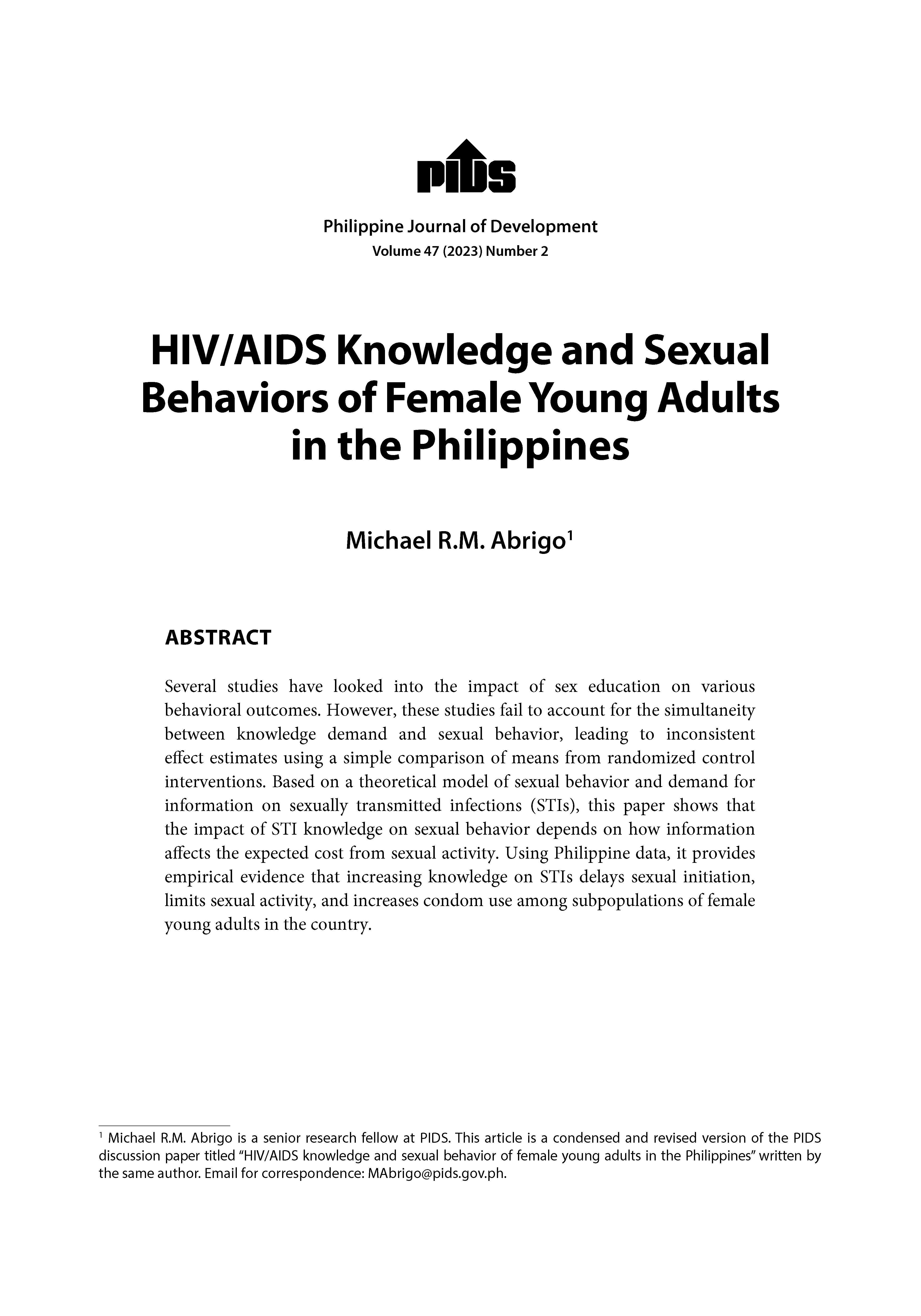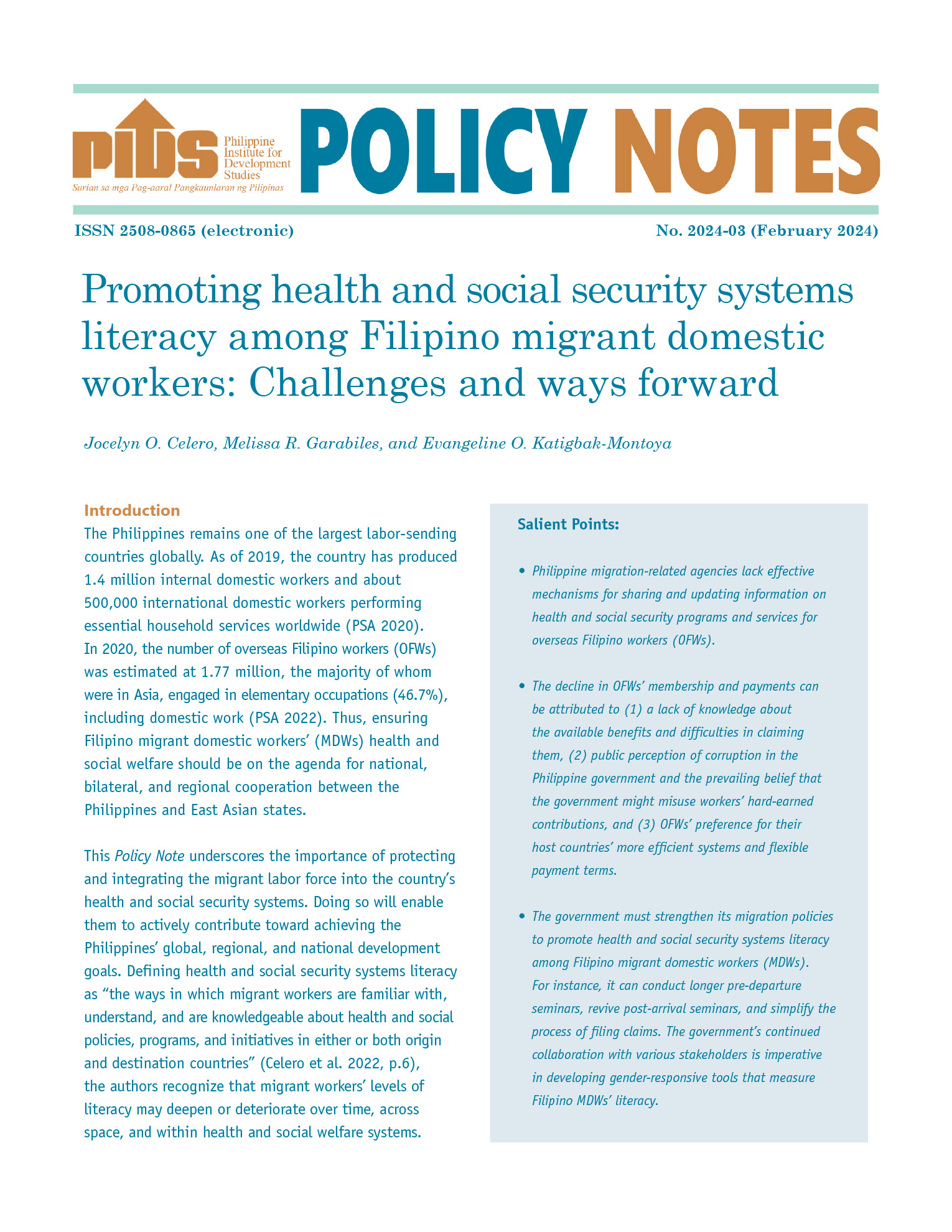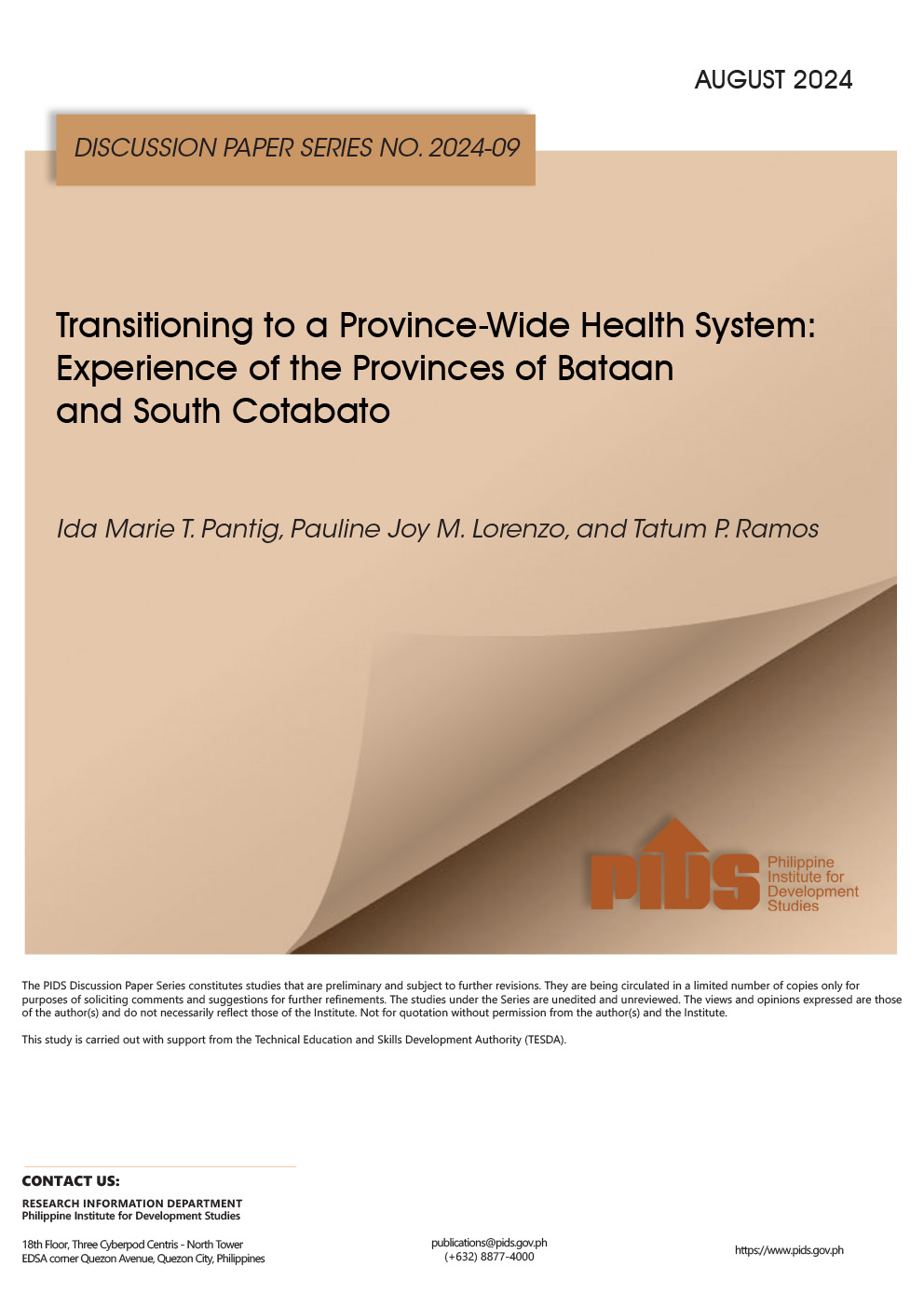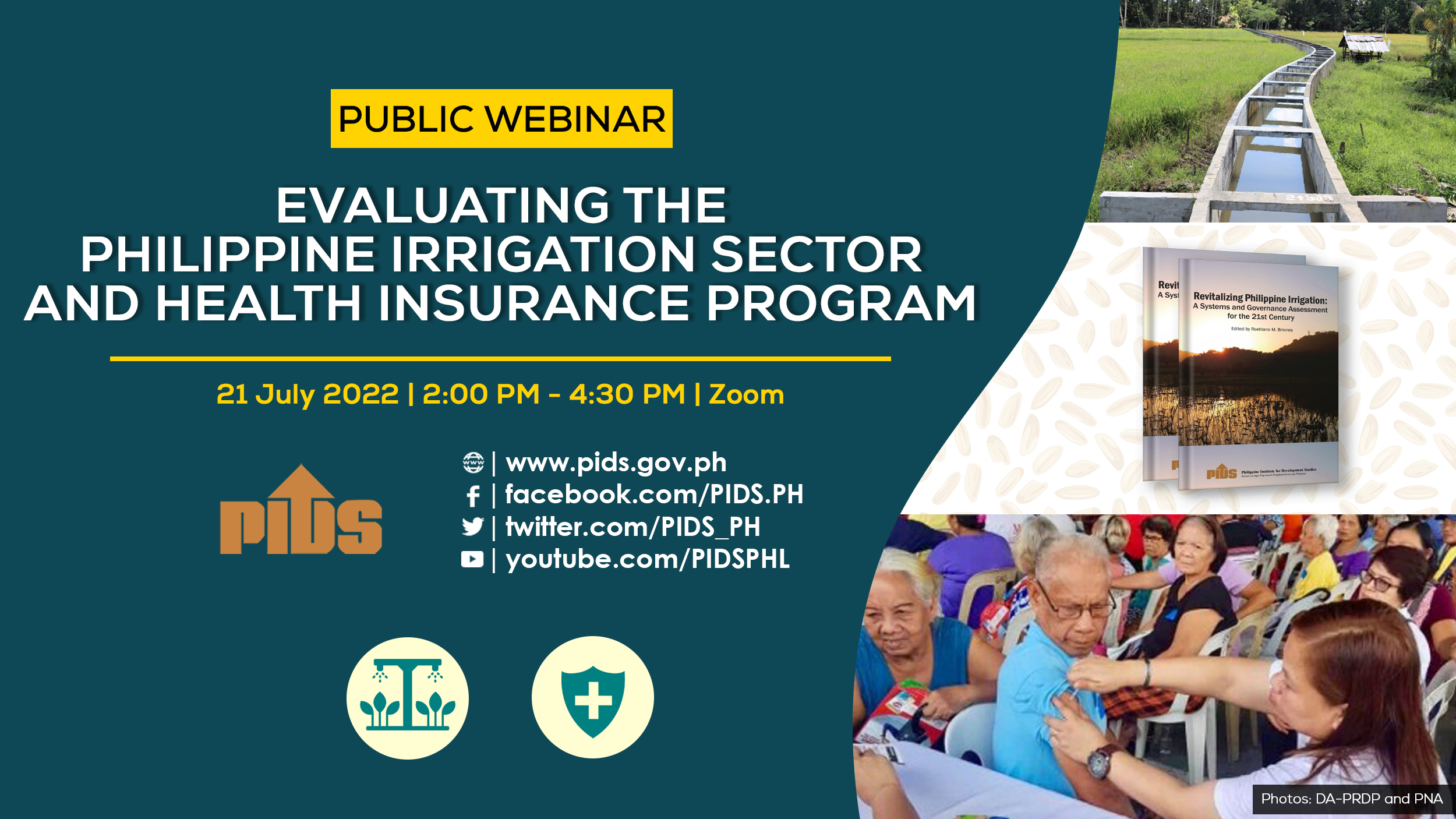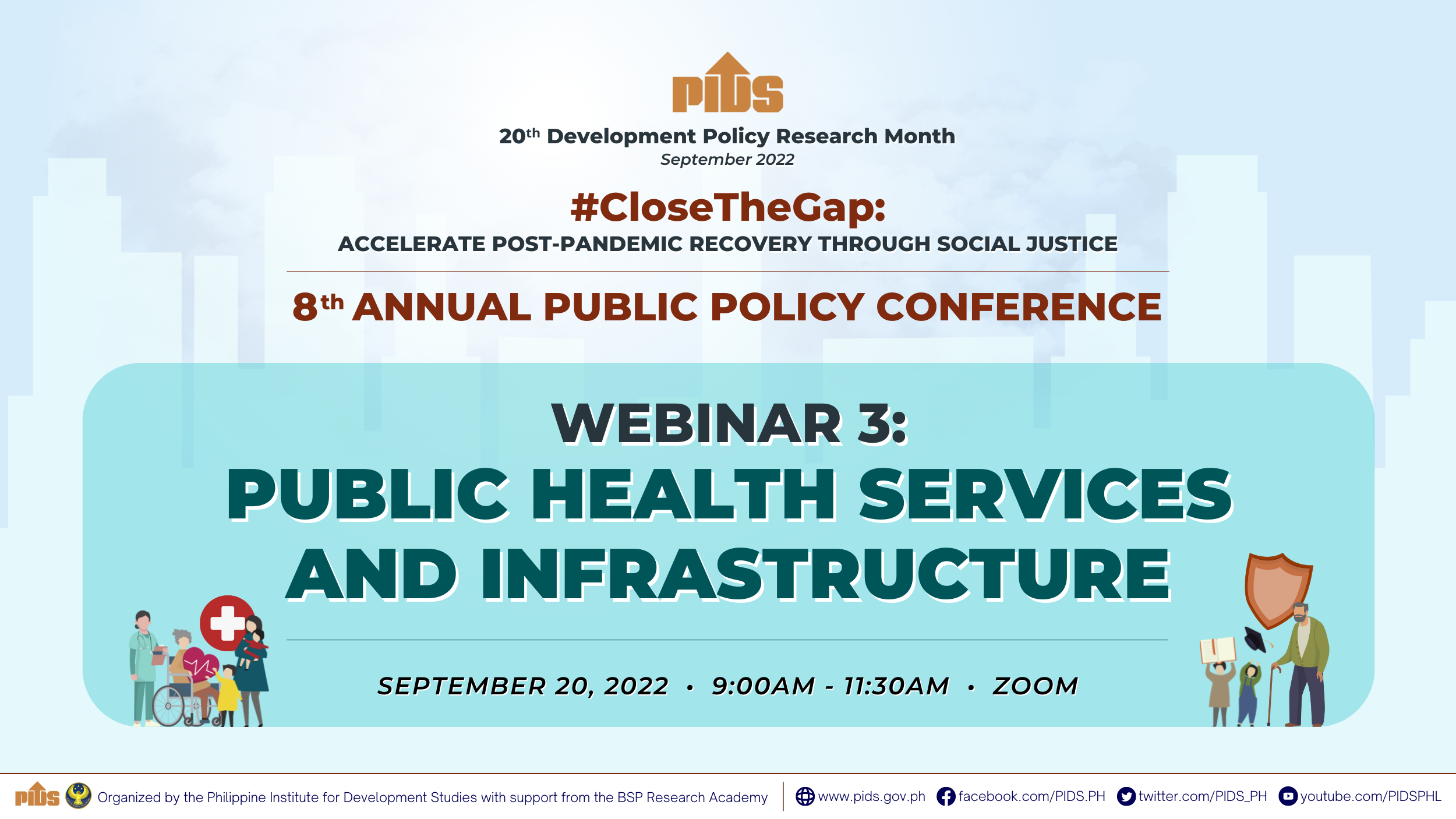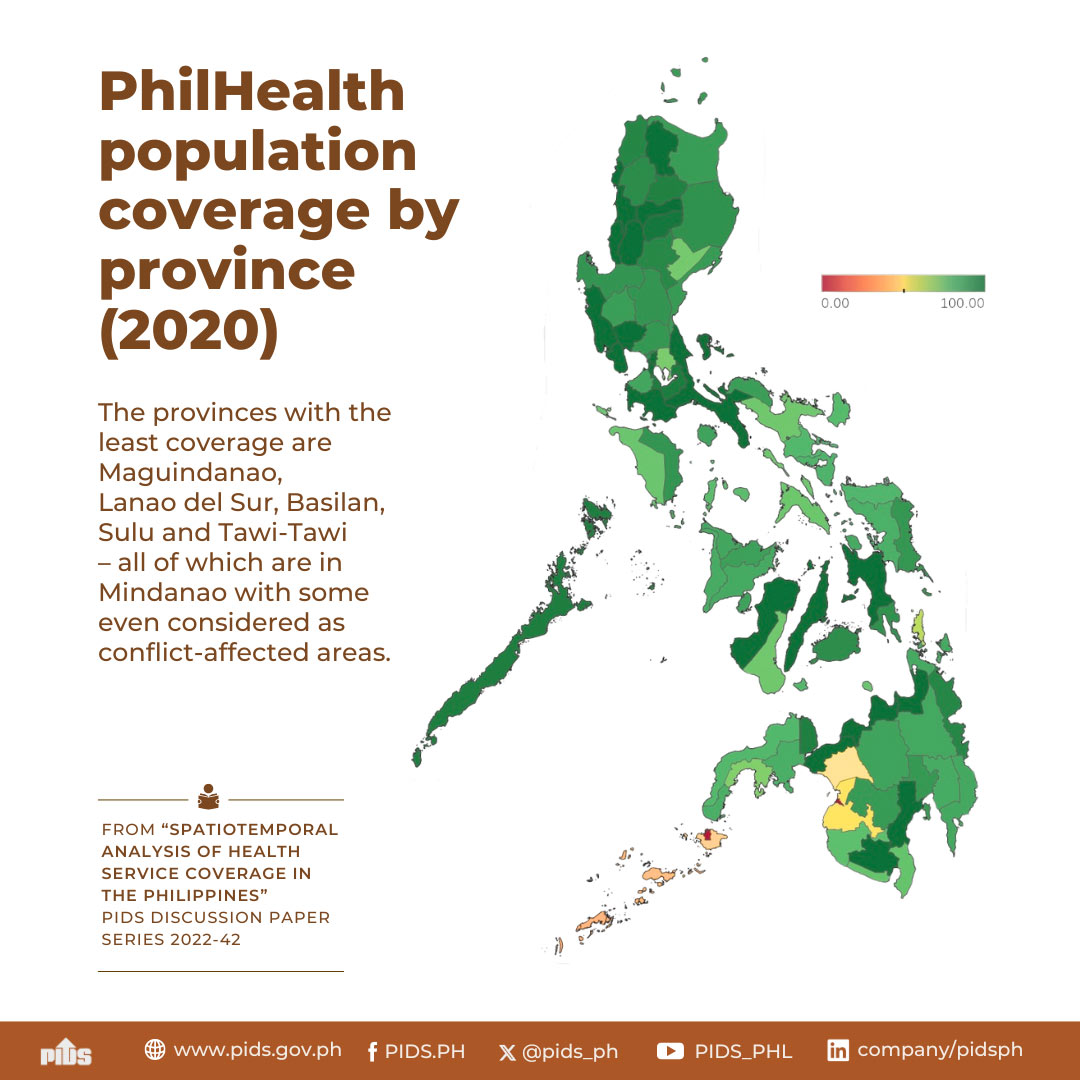
The responsible parenthood and reproductive health (RPRH) Act should be integrated into the country’s national governance.
This was emphasized by Jhanna Uy, supervising research specialist at the Philippine Institute for Development Studies, during a webinar on RPRH recently organized by the Institute.
Presenting the PIDS study she coauthored with PIDS Senior Research Fellow Valerie Gilbert Ulep and PIDS Consultants Vanessa Siy Van and Joy Bagas, Uy identified several RPRH implementation challenges in various governance components.
For one, the study found that “there was no integration of [government] interventions into a comprehensive package of RPRH services.” According to Uy, the implementing agencies focused on individual programs, mostly on family planning and adolescent reproductive health.
Moreover, these agencies fulfilled law mandates that “did not require coordination across agencies”. These mostly include the tasks of the Department of Health (DOH), such as releasing guidelines, policies, and standards.
The study likewise found that most national government agencies (NGAs) tasked with RPRH mandates did not have dedicated RPRH focal units. At the DOH, RPRH-related programs and tasks are spearheaded by different offices.
“Even support functions were fragmented across DOH organizational structures. Most of their programs are lodged in the Disease Prevention and Control Bureau, but things like logistics are lodged in other clusters with different [officials] that really made it difficult for them to coordinate,” Uy pointed out.
The study also highlighted the inability of the national implementation team (NIT) to fulfill its mandate as the agency body for coordinating RPRH efforts.
“It was unclear among the NGAs what exactly was to be coordinated. Was it about policy, operations, or accountability?” Uy said, adding that this was evident during the NIT meetings where there were “little to no discussions on strategy, coordination, or cross-NGA collaboration”.
Another problem is the absence of a strategic plan or framework to institutionalize RPRH within and across NGA implementers. The study found that while some agencies had policies to direct their RPRH implementation and operations, “most did not pertain to RPRH mandates as a whole.”
“The focus on family planning, maternal health, and comprehensive sexuality education in NIT meetings contributed to the absence of other agencies and their decisionmakers. Without a strategic agenda, agencies do not have a clear purpose and benefit in attending [the] NIT meetings,” Uy said, noting that this has contributed to the slow implementation of some of the law’s elements.
Relatedly, Uy said the lack of a strategic plan “resulted in unclear and fragmented monitoring frameworks to measure progress for RPRH implementation”.
Given these challenges, she emphasized the need to set up systems for a “more collaborative governance” among the multiple sectors involved in RPRH implementation.
Uy also urged the government to view RPRH not just as a health sector issue but also as a “population development and rights” issue.
“This means tackling more structural elements of the RPRH such as empowering women and children, education, and poverty reduction. We wanted them to switch to a systems approach in integrating RPRH and not just a family planning-centric approach,” Uy explained.
Other recommendations include ensuring that the NIT members understand the RPRH landscape and their roles, as well as developing a roadmap or a strategic plan that includes a comprehensive package of RPRH services and innovations for existing RPRH activities.
Uy noted that in the long run, the NGAs should be held accountable against these roadmaps.###
You may watch the webinar at https://fb.watch/d5SXcFr5Tj/ or https://youtu.be/veZM3CSuraI.
For more videos of PIDS events, go to https://www.pids.gov.ph/videos.

